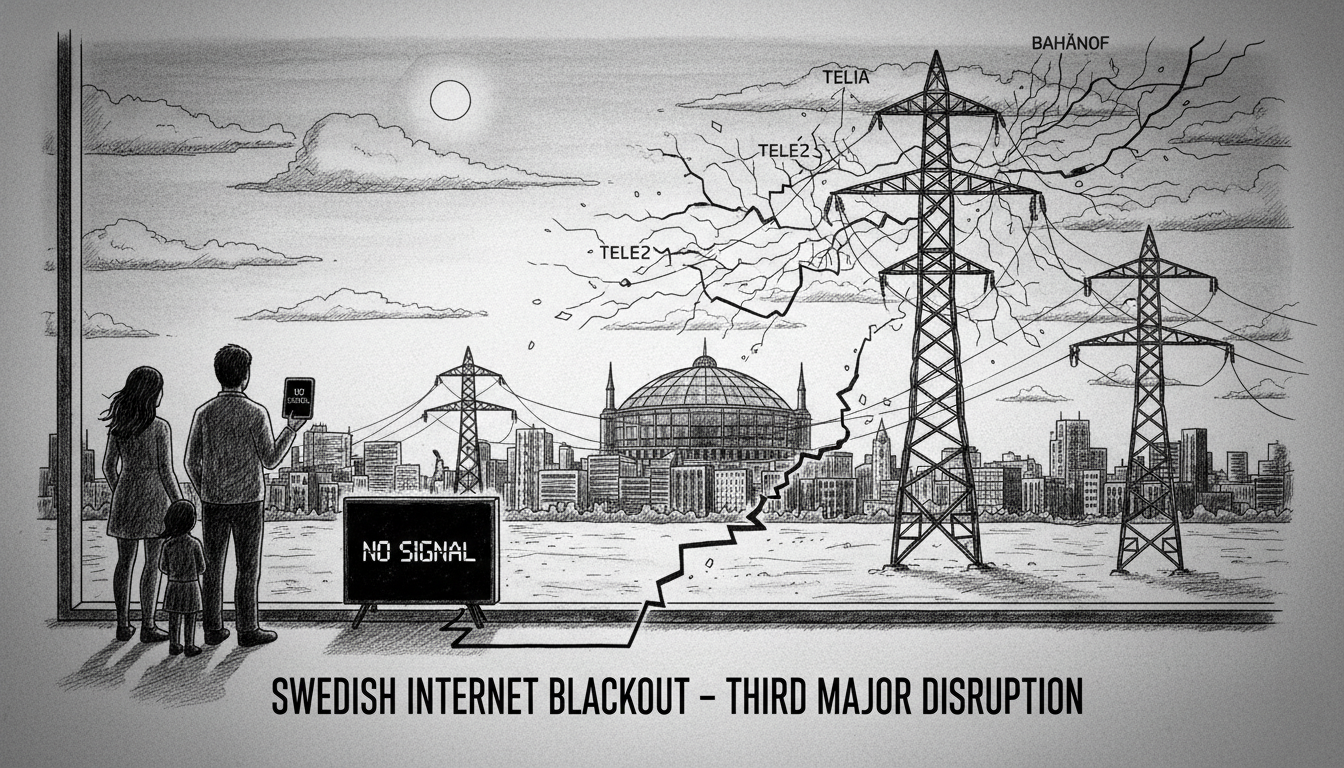A widespread internet disruption affected multiple Swedish telecommunications companies on Saturday evening. Hundreds of customers reported connectivity issues across several major providers. The problems began around 8:20 PM local time and continued for several hours.
Telia confirmed it was investigating technical difficulties. The company acknowledged some customers experienced problems with broadband and television services. Technical teams worked to identify and resolve the underlying cause.
Similar issues appeared with other Swedish internet providers. Approximately one hundred people reported problems with Tele2 services. Telenor and Bahnhof customers also experienced connectivity challenges during the same period.
This marks the third major telecommunications outage in Sweden this year. Previous incidents in spring and summer affected different regions. The recurring pattern raises questions about infrastructure resilience.
Sweden maintains one of Europe's most advanced digital economies. The country consistently ranks among global leaders in internet connectivity and digital services. This makes network reliability particularly crucial for both businesses and households.
Telecom outages carry significant economic implications in highly digitalized societies. Many Swedish businesses rely on continuous internet access for operations. Remote workers and online services face immediate disruption during such incidents.
Swedish consumers enjoy strong consumer protection laws regarding service interruptions. Providers typically face compensation requirements for extended outages. The regulatory framework emphasizes service quality and reliability.
The timing of this weekend outage proved particularly inconvenient. Saturday evenings represent peak usage periods for streaming and online entertainment. Many households found their weekend plans disrupted by the technical problems.
Sweden's digital infrastructure generally maintains high reliability standards. The country has invested heavily in fiber optic networks and 5G technology. This makes widespread outages across multiple providers somewhat unusual.
International observers often study Nordic digital infrastructure as a model. The region consistently demonstrates high internet penetration and advanced digital services. This incident provides valuable lessons about maintaining network reliability.
Telecom companies face increasing pressure to ensure uninterrupted service. The growing dependence on cloud services and remote work makes connectivity essential. Providers must balance innovation with reliability in their network planning.
Technical teams worked through the evening to restore full service. Customers reported gradual improvement in connectivity as the night progressed. The resolution process appeared systematic across affected providers.
This incident highlights the interconnected nature of modern telecommunications. Problems affecting one provider can sometimes create ripple effects across others. The industry's shared infrastructure requires coordinated maintenance and upgrades.
Swedish authorities monitor telecommunications reliability as part of national infrastructure planning. Regular reports assess network performance and identify improvement areas. This outage will likely feature in upcoming regulatory discussions.

